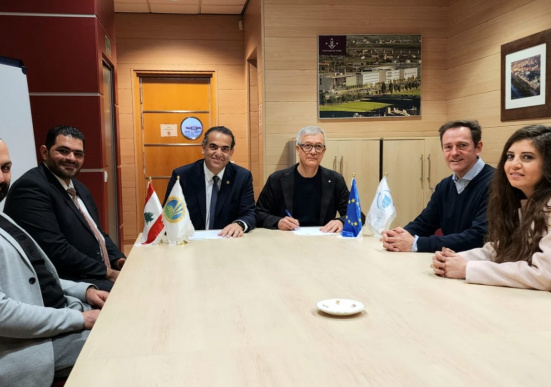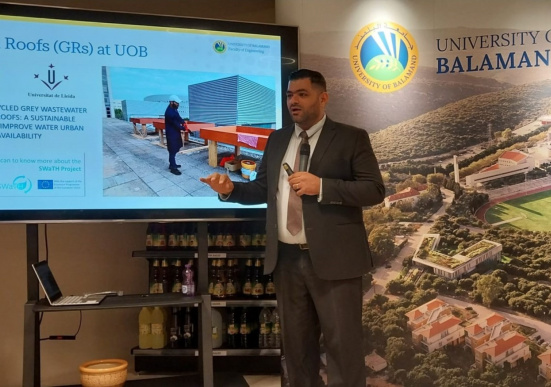Within the context of the SWaTH project, the Faculty of Engineering at the University of Balamand collaborated with the Erasmus+ office in Lebanon to organize an awareness workshop on water topics on May 12, 2022.
Students and dignitaries attended this workshop virtually or physically, including many municipalities and municipality unions , wastewater treatment manufacturers, hospitals, the North Lebanon Water Establishment (NLWE), environmental specialists and activists, and NGOs.The Vice President for Internationalization and Engagement and Dean of the Faculty of Engineering, Professor Rami Abboud, welcomed the audience at the University of Balamand (UOB) and emphasized UOB’s role and commitment to local communities and sustainable development. Sequentially, Dr. Aref Al-Soufi, coordinator of the National Erasmus+ Office in Lebanon, discussed the long history of successful collaboration with UOB, underlined the impact of the Erasmus+ projects over the past years, and pointed out the high importance of the partnership between the different EU funded projects.
An overview session followed the welcoming note, including a general presentation of the Aquacycle, Claim, and SWaTH projects. Dr. Mohamed Khalil from the Faculty of Engineering at the Lebanese University presented the Aquacycle project to convert domestic wastewater into irrigation water. From the Faculty of Engineering at the Lebanese University, Dr. Clovis Francis shed light on the Claim project that focuses on microplastic waste contaminating seawater. Finally, Dr. Makram El Bachawati from the Faculty of Engineering at the University of Balamand (SWaTH Project Coordinator) introduced methods for sustainable wastewater treatment in the healthcare sector. The second session included a scientific and technical presentation of each project. Dr. Ahmed El-Moll, director of the scientific project, Dr. Wael Hamd, associate professor at UOB, and Dr. Aline Saad, Director of Faculty Development, highlighted the objectives, results, and recommendations of the Aquacycle, Claim, and SWaTH projects, respectively.
The workshop was concluded with a panel discussion session moderated by the assistant to the Vice President of the University and Director of the Student Affairs Office, Mr. Michael Salem. The session presented ways to strengthen the liaison between the three projects, the importance of water treatment in Lebanon at numerous levels, and working hand in hand with the European partners. This session included questions raised by the attendees, who expressed great interest in solving the sewage pollution problem in the North.



